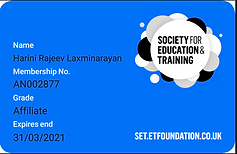Renal Function in maintaining water balance
- Harini Rajeev
- Jul 28, 2021
- 1 min read
OBJECTIVES: By the end of this lesson learners should be able to

Enlist the important role that water plays in our body. By completing the work out.
Describe the role of anti diuretic hormone (ADH) in osmoregulation. By completing the work out.
Summarise the steps involved in urine formation. Key function of nephron sheet.
Evaluate the advantages and disadvantages of treating organ failure by dialysis.
Learning outcomes:
Summarise gross and microscopic anatomy of kidney
Outline three processes involved in urine formation
Describe osmoregulation using ADH
Understand the mechanism of Dialysis in treating kidney failure.
Extended knowledge on diuretic drugs.
SUMMARY OF LESSON
The concentration of blood is monitored by a part of your brain called the osmoregulatory centre. This is next to your pituitary gland. This gland releases a hormone called anti-diuretic hormone (ADH) into your blood stream. This is carried to its target organs, your kidneys, in your blood. The volume of ADH that is excreted by your pituitary gland controls the volume of urine you excrete.
When you consume more water than you need, less ADH is produced. This means your kidneys release more water into your urine. When you consume less water than you need, more ADH is produced. This means your kidneys release less water into your urine. You will excrete less, but more concentrated, urine.
This is an example of negative feedback control. Here your body detects a change in water concentration in your blood and makes necessary adjustments to return to normal.
Urea is the result of excess protein that your body has broken down to excrete.


Comments